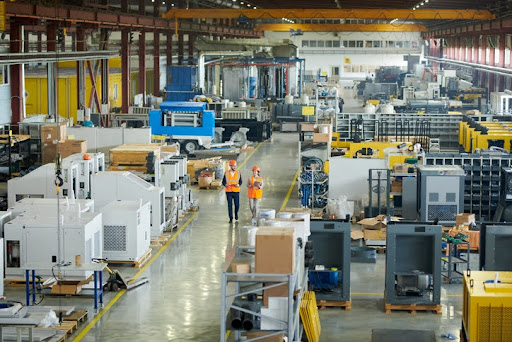Industrial facilities have to adhere to the strictest standards around safety and compliance, or risk very expensive and potentially even deadly consequences. Keeping these facilities running safely and efficiently is a top priority for owners and operators. Comprehensive recycling services can help industrial businesses maintain those high standards. Once the appropriate recycling services and systems are in place, managing recyclable waste safely and correctly becomes second nature for workers in industrial facilities.
What Should Recycling Services for Industrial Facilities Entail?
Even for businesses that operate in the same general industry, there’s no one-size-fits-all solution for implementing an efficient recycling system. A company that packages food products will naturally have different waste management needs than a tire manufacturing plant or a scientific research facility. So, owners and operators of industrial facilities should always work with their recycling services provider to customize all the elements of their master plan for managing recyclable waste.
As a general guide, here’s an overview of four core components that may be part of an industrial facility’s comprehensive recycling system:
- Strategies for recycling different material types.
For every type of recyclable material your industrial business works with, there should be a corresponding plan for collecting and disposing of that material.
- Scrap metal: Manufacturing and processing facilities can generate huge quantities of scrap metal every day. Often, industrial businesses work with multiple types of metal, each with its own price in the scrap metal market. Having the appropriate containers to collect and sort everything helps a business get top dollar for its scrap metal.
- Plastic waste: Managing plastic waste is notoriously challenging. Individuals struggle to distinguish between plastics that are highly recyclable and plastics that aren’t, so valuable materials may end up being thrown away while things like thermoset polymers get mixed in with recyclable plastic. For industrial facilities, disposing of plastic waste correctly is about separating all the things that may be valuable on the scrap market from everything else.
- Hazardous materials: Any facility that generates hazardous waste should already have systems in place to dispose of it appropriately. But, the stakes are high enough that businesses should reassess their hazardous waste management procedures often. As a facility’s processes evolve and its workers come and go, things can slip through the cracks. Hazardous waste disposal should never be one of them.
- Organics: Industrial facilities that produce or package food, or work with other organic materials, must have strategies in place for diverting organic waste from landfills. The Massachusetts organics waste ban technically only applies to entities that generate more than one-half ton of this material per week, but all organizations can arrange for organic waste to be composted, converted into energy or otherwise recycled.
- Strategies for on-site recycling management.
Because industrial facilities generate so much waste every day, these sites tend to need more in-house solutions for collecting and managing recyclable materials than some other types of businesses. For liability reasons, employers can’t let hazardous waste be left unsecured, or let walkways and fire exits become blocked by piles of scrap material. Working with a recycling services provider to bring in equipment such as compactors and balers allows industrial facilities to contain and condense recyclable waste as soon as it’s generated. This step helps keep waste collection areas organized and workers safe.
- A plan for maintaining compliance with any relevant waste management regulations.
Both industry-specific and state-specific regulations may govern how an industrial facility approaches recycling. Keeping track of everything that’s required for compliance can become complicated in busy organizations. Business leaders may want some guidance from their recycling service about questions like: Are we mishandling any materials? What does MassDEP require of us? What’s the most budget-friendly way to comply with this regulatory requirement?
Understanding what’s required of your organization also ensures you’re able to document any relevant waste disposal processes. In the event that MassDEP or another governing body wants proof of compliance with some recycling regulation, it should be no problem.
- A collection schedule tailored to the facility’s shifting needs.
The quantity and type of recyclable waste an industrial business generates might change from day to day, or from week to week. Fluctuations in waste output may create fluctuations in your need for recycling services. It should be easy to make changes to your pickup schedule so you’re not paying for more services than you need, but also don’t get stuck with a ton of extra material clogging up your facility during periods when waste output is higher than normal.
Need Recycling Services for Industrial Facilities?
Miller Recycling partners with industrial businesses of all sizes to create customized recycling solutions for their facilities. From providing recycling equipment, to making recommendations about things like hard-to-manage plastic and organics waste, we provide a full range of recycling services to address the unique needs of manufacturers and other industrial businesses. Let’s talk about ways to streamline your processes to ensure compliance with regulations and make your recycling services as cost-effective as possible. Please, contact me today!


